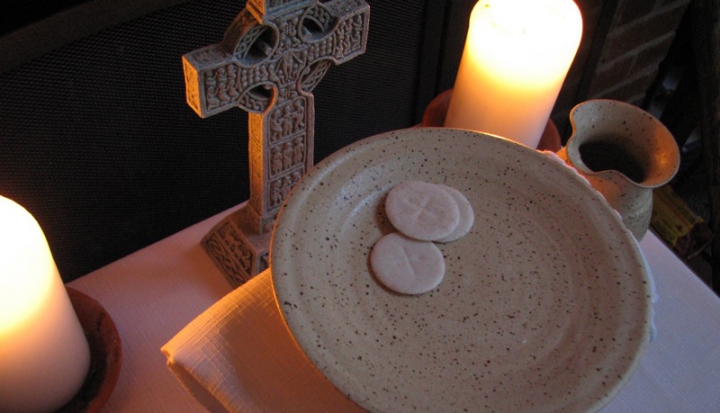The smarty-pants answer is that it happens all the time. There’s no security check at Communion stations. Ushers seldom rack up more than a couple of Communion-line tackles in a long career. So every Sunday just about everyplace, a Lutheran or Presbyterian or Druid sneaks in. Perhaps the person has not read the statement of the U.S. bishops printed in the worship aid about who’s in and who’s out when it comes to Holy Communion. Perhaps they are operating on the theology of their own churches, which can be summed up by saying that once you’re in the water, you’re at the table.
At a Catholic Mass Orthodox Christians are officially welcome to receive, but they probably shouldn’t, since their own church sometimes levies a sentence of excommunication for those who receive Communion with us. Polish National Catholics and the Assyrians of the East are likewise welcome, and we can receive the sacraments from them if we are gravely ill. So far, that’s it, with some exceptions.
There are five conditions set down in canon law by which a baptized Christian who is not Roman Catholic can receive with us. Like all church law these conditions are meant to be interpreted through the lens of charity.
Two of these conditions are that the person first must share our Catholic faith in the meaning of the Eucharist, and they must lack normal access to a minister of their own faith tradition. Think of the widow of a Catholic at his funeral, or a devout lady who is gravely ill in a nursing home whose minister never visits, the prisoner isolated from the church community, or a soldier who worships at Mass with his or her comrades on the eve of a dangerous mission. In each case the canonical provisions suggest that the desire to receive sometimes trumps our Catholics-only policy.
But at this point in ecumenical relations, each situation has to be handled individually, normally in consultation with a priest, and ideally in dialogue with the bishop. This remains a pastoral problem that is under constant investigation and study.
For now a diocesan bishop is free to resolve individual cases and to craft general norms that do not conflict with current church law. One who expresses a desire to receive Communion or an attraction to the Eucharist may in fact be articulating a desire to be received into the full communion of the Catholic Church. For many new Catholics the desire to receive was the first step into the life of our community of faith, and their hunger and thirst for the Lord has helped many lifelong Catholics see how tremendous a gift we have in the Eucharist.
This article appeared in the December 2008 issue of U.S. Catholic (Vol. 73, No. 12, page 41).
Image: Flickr cc via Alan Creech















Add comment